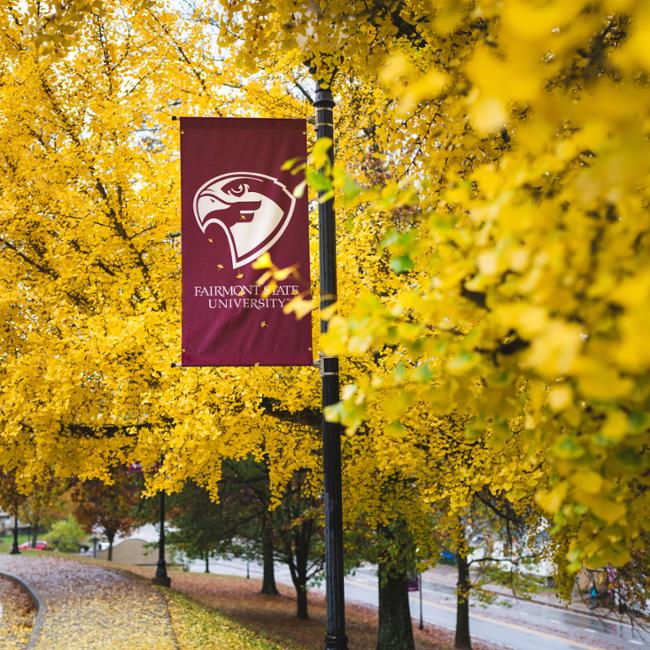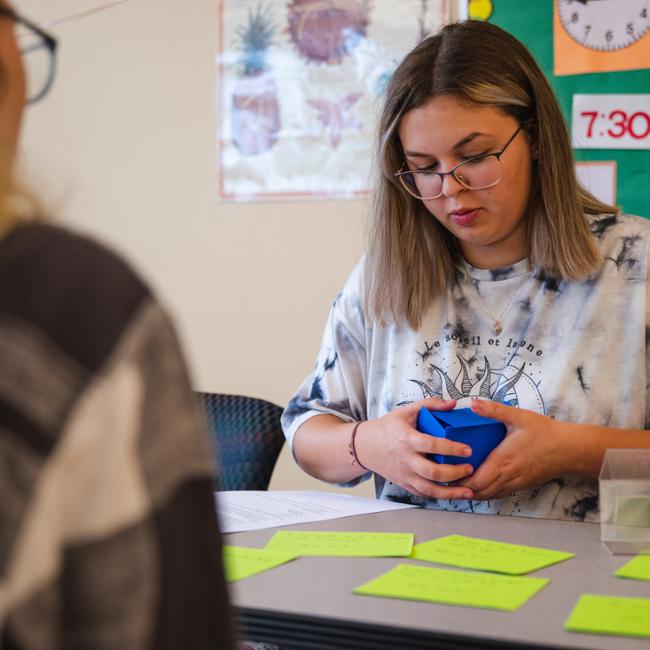Fellowships differ from scholarships as they provide long-term support, rather than one-time financial dispersals. Students in the Datha and Gene Smith Fellowship & Summer Bridge Program are bolstered throughout their college careers.
Once selected, fellows begin their program with a mandatory bridge program, a five-day stay at Fairmont State during the summer. This bridge program gives fellows an indispensable link from high school to college with the aim to reduce the anxiety that comes with the transition. It gives these students a positive jump-start to college life. A fellowship coordinator ensures that students receive ongoing support, which includes time to socialize with other fellows. Throughout the five-day summer bridge, fellows live on campus, which helps them gain familiarity with the university’s layout. They have the opportunity to talk with advisors, meet other students and learn about academic studies—all in a relaxed setting. Next year’s summer bridge program runs July 6-11, 2024. “Bridge week happens over the summer, so the fellows get to know each other before classes start,” said Marissa Mauro, Fairmont State Foundation Director of Development for Annual Giving and Stewardship. “They develop new friendships and build a community of camaraderie.” While bridge programs vary at different universities, Fairmont State’s main goal is to reduce the barriers that intimidate high school students from going to college. In past generations, a post-secondary degree didn’t always matter. Young people attained fulfilling work and stayed with one company for their entire working lives. On the job training was common, and it gave promising employees opportunities for advancement. Today’s job market is different. According to the Association of Public and Land-grant Universities, income disparity between college graduates and high school graduates starts early. While still in their 20s, college graduates can expect to earn on average $20,000 more per year than high school graduates. Those numbers add up. Over the course of a lifetime, college graduates earn $1 million more than those without a degree. West Virginia’s goal is to have 60 percent of its adult population attain a college degree or other type of credentialed education by 2030. Right now, fewer than one-third of West Virginians have any of these credentials. Fairmont State’s commitment to first generation students is evident in its numbers. Since 2012, nearly 40 percent of the university’s graduates have been first generation students. Forty-three percent of Fairmont State’s current freshmen are first generation students. “As a first-generation West Virginia college student, I understand the challenges of being the first in your family to attend college,” Interim Vice President of Student Success Alicia Kalka said. “My family was highly supportive of me going to college and planted that seed into me at a very young age. We had to learn together the process of enrolling and all the resources that I needed to be successful. If I had attended a summer bridge program like this, I think my transition would have been easier. I am so proud of our Datha and Gene program because we are providing a true bridge for first generation students from West Virginia and access into post-secondary education.” Although neither Gene nor Datha Smith pursued a post-secondary education, they saw its value. In 2005, the Smiths established a foundation to help first generation students. Since then, the Smiths have passed, but their children have carried on their parents’ legacy by founding this recent fellowship. “Fairmont State is here to ensure that our first-generation students know there is a way, and we are here to help them reach their dream of going to college,” Kalka said. “As a university, we are mission driven to educate and prepare people for the workforce. When we achieve this, we’re contributing to West Virginia as a whole.” It is through this fellowship that students are able to achieve their goals of a four-year degree. Because the fellowship covers many of the costs to attend Fairmont State, fellows are able to focus on academics rather than a future with inordinate student debt. “I’ve watched the students gain confidence as they make the transition to college life,” said Erin Hohl, Coordinator of the Datha and Gene Smith Fellowship. “The fellows know they are showing their potential to do something life-changing for themselves after going through the fellowship.” Fellows Accepted into the 2024 Summer Bridge Program will:
Requirements to Apply for the Datha and Gene Smith Fellowship:
You can apply for the The Datha and Gene Smith Fellowship online. The deadline to apply is March 1, 2024.
John wanted to do whatever he could to help others achieve advanced education so that they could help other less fortunate people. Being a frugal person, John, Jr. carefully managed his limited sources of income. Thus, a significant portion of this endowment consists of the money from his own savings account.
“I am thankful that we will be able to provide funds to teacher candidates pursuing special education,” said Julie Reneau Professor of Special Education and Executive Director of Autism Individualized Mentoring & Support Services. “There is a critical shortage of special educators in our region and skilled special educators are needed to help students with disabilities reach their long-term goals. I am so amazed and appreciative that the money for much of this endowment comes from John Jr.” The John Anthony Carbone, Jr. Memorial Endowed Scholarship will provide funds to students demonstrating financial need to cover tuition, fees, books, room, and board. Students who are residents of West Virginia or children of West Virginia residents are eligible for this award with preference given to graduates from high schools in Marion, Monongalia, Harrison, and Taylor Counties. Recipients must maintain a grade point average of 3.0 or better and be entering their junior year of studies as a special education major. |
Categories
All
Archives
April 2024
|



